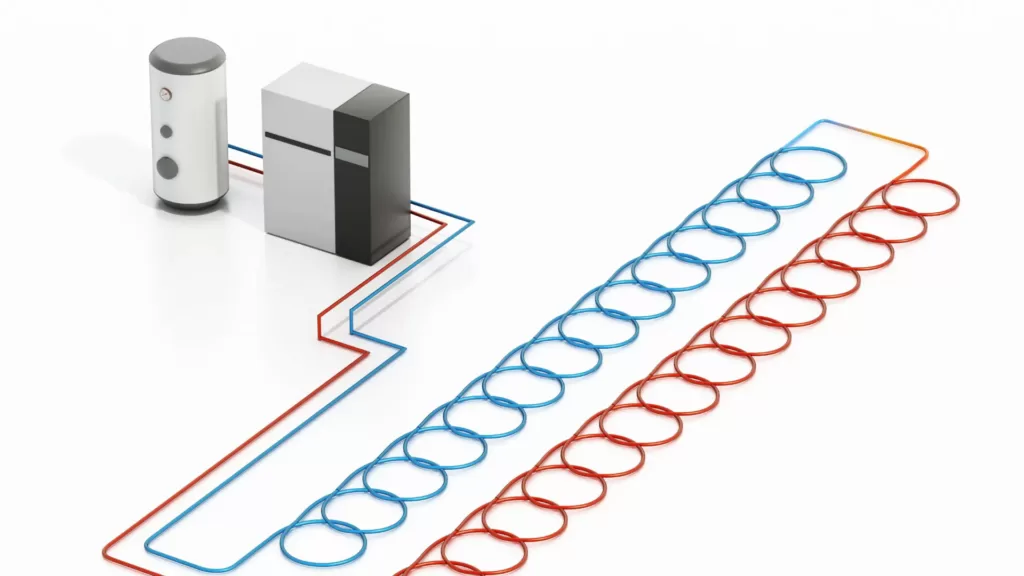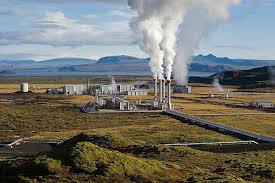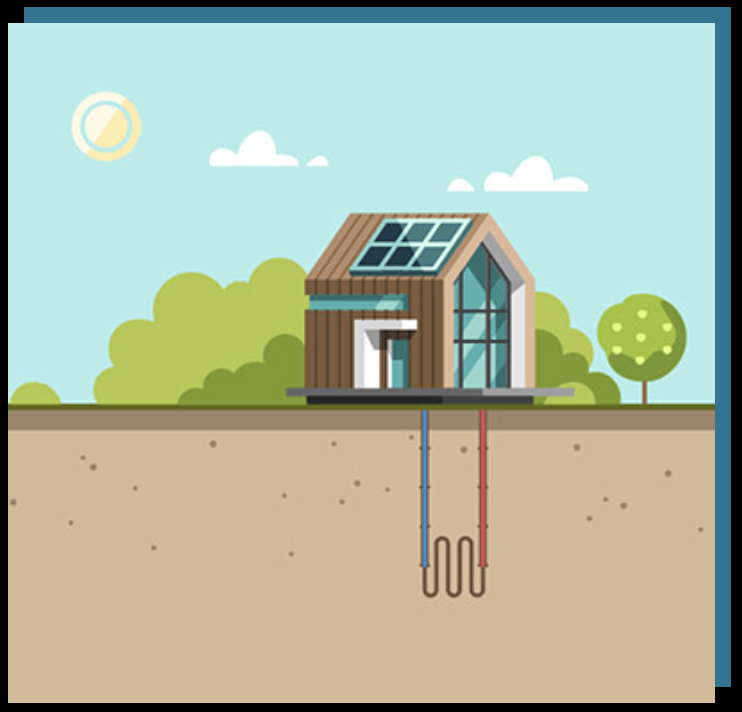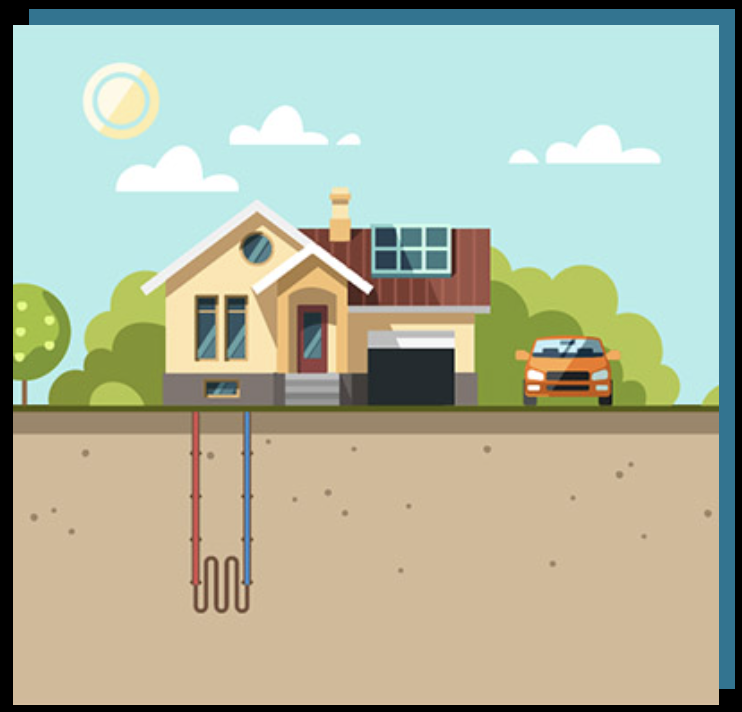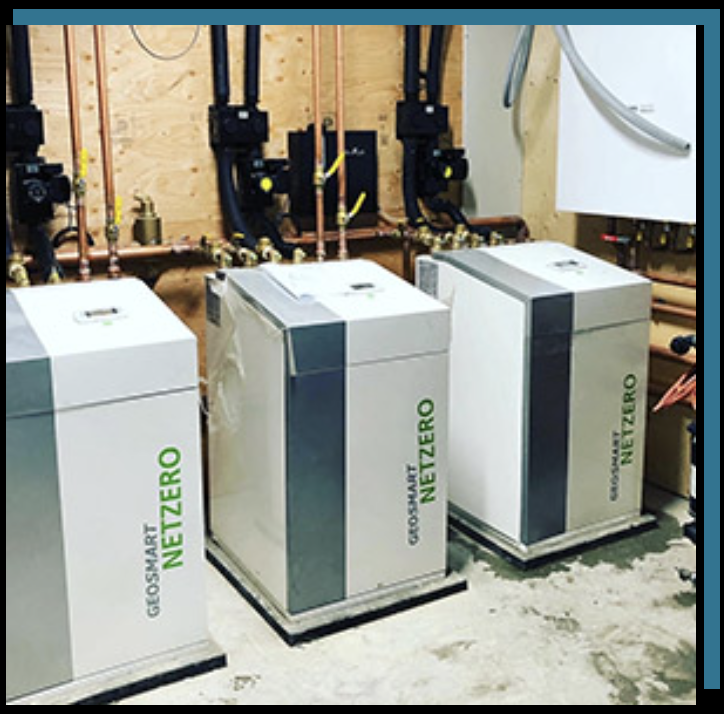What Are Energy Efficient Heat Pumps
A heat pump is a device that transfers heat from one place to another, from inside to outside or from outside to inside. In the winter, a heat pump works like a heater, taking heat from the outside air and transferring it inside. In the summer, the process is reversed, and it removes heat from your house and transfers it outside.
Energy efficient heat pumps are those that perform this function but with higher efficiency, meaning they use less energy to move more heat. This efficiency is typically measured by a Coefficient of Performance (COP), which represents the ratio of useful heat movement per work input. A higher COP means greater efficiency.
The energy efficiency of heat pumps has significantly improved in recent years due to advancements in technology. For example, some modern heat pumps use variable speed compressors, which adjust speed based on the heating or cooling demand. This leads to less energy consumption compared to traditional models that simply turn off and on.
Another feature in energy efficient heat pumps is the use of advanced heat-exchange coils that increase the surface area and allow for better heat transfer. In addition, some heat pumps also utilize smart thermostats or zoned heating controls, allowing homeowners to adjust heating or cooling in different parts of the home. This customization prevents the system from wasting energy by heating or cooling areas that are not in use.
Energy efficient heat pumps have become popular because of their potential to reduce energy costs and environmental impact. They’re considered a sustainable heating and cooling solution because they don’t burn fuel to create heat; instead, they use electricity to move heat from one place to another, making them a more environmentally friendly choice compared to traditional heating systems.
Different Types of Energy Efficient Heat Pumps
Ground Source Heat Pumps or Geothermal Heat Pumps: These heat pumps use the earth or groundwater as a heat source in the winter and a heat sink in the summer. Because the ground temperature is relatively constant throughout the year, these systems are very efficient – much more so than traditional Air Source Heat Pumps. The installation cost can be higher due to the need for ground excavation, but the operational costs are lower due to the higher efficiency.
Ductless Mini-Split Heat Pumps: These systems can be an excellent solution for homes without ductwork. They consist of an outdoor compressor unit and one or more indoor air handling units. Ductless heat pumps can provide zoned heating and cooling, which can increase efficiency by only conditioning the rooms that are being used.
Absorption Heat Pumps: Also known as gas-fired heat pumps, these systems use heat as their energy source, which can be solar-heated water, geothermal-heated water, or natural gas. These can be an efficient choice in situations where these heat sources are readily available.
Air-to-Water Heat Pumps: Common in Europe but less so in the US, these systems use the outside air as a heat source and transfer it to a water-based system such as radiators, underfloor heating, or warm air convectors. The efficiency of air-to-water heat pumps is often quite high because the process of transferring heat to water allows for a more consistent distribution of warmth. These systems can also operate effectively at low outdoor temperatures. Many models are designed to work in climates where temperatures drop well below freezing.
Helping Build A Sustainable Future With Energy Efficient Heat Pumps
Often the reason a homeowner does not make a home sustainable is the cost. There is a widely held belief that a sustainable home that uses renewable energy systems, sustainable building products, and energy efficient designs costs significantly more to build and operate than a home built with conventional materials and systems. Whether or not that is true (and it is debatable) the operational costs for a conventional home are skyrocketing and renewable and sustainable systems, such as heating and cooling based on a Ground Source Heat Pump (GSHP) could not only be the way to reduce a home’s carbon footprint but to beat the rising cost of energy in Canada.
Discover how geothermal heating and cooling fits your needs.
For Albertans, the struggle to reduce energy usage is very real. Energy efficiency improvements such as more and better insulation, high-efficiency appliances, and lighting can help. Another improvement is to stop using natural gas completely, eliminating the need to pay those tariffs that keep coming, even in the months where you don’t consume any natural gas. For those in mixed source homes, just removing one of the utility bills altogether would be extremely beneficial. GSHP systems for example can replace a gas-fired furnace, omitting the gas bill entirely.
Is it bad and getting worse? In the near future, apparently so. The accounting firm Deloitte Canada is predicting energy prices will remain volatile for at least the rest of 2023. The major cause of the volatility according to Deloitte is the “ongoing geopolitical uncertainty”. Most analysts believe the war in Ukraine along with global price inflation concerns are driving spikes and steadily rising energy costs.. A change in either of those situations will take a while to be reflected in better energy prices, so increased efficiency and the use of technology that reduces the use of gas and electricity in the home are the first and best tools in this struggle. Because Alberta generates its own electric power, global events have a lower impact on prices here.
That’s where and why Geothermal Energy Efficient Heat Pumps makes so much more sense.
The logic path is pretty straightforward: Omit as many utility bills as possible. The largest user of both of those fuels in a home is the Heating, Venting and Air Conditioning (HVAC) system. Energy efficient heat pumps like GSHP, utilizes the natural (and free) heat energy below ground for heating in the winter, and cooling in the summer. All of this while providing more consistent climate control, and higher air flow through a home.
It’s not just a little bit, either.
The reduction in energy usage that can be found through a GSHP is actually pretty astounding. These systems are as much as 400% more efficient than conventional HVAC systems. This translates into lower electric bills every month. Since no natural gas is involved, that bill (at least for heating) goes right to zero.
HVAC systems are rated on efficiency with a SEER (Seasonal Energy Efficiency Rating) number. The higher the number the better. New systems are required by law to have a SEER rating of 13. A rating of 14.5 will get a unit an EnergyStar designation, the international symbol for premium energy efficiency. A Ground Source Heat Pump’s SEER rating comes in at 30, just over twice what is required for an EnergyStar designation. There are other ratings that can be applied (e.g. an EER cooling rating) but regardless of the measure, GSHPs are more efficient, use less electricity, and consequently are cheaper to operate than conventional HVAC systems by a significant margin.
When you look just a little bit closer and include all the costs associated with an HVAC system, Geothermal energy efficient heat pumps continues to check off all the boxes. For larger acreages, the cost of running natural gas lines is taken out of the equation. The mere fact that a GHSP has fewer moving parts than a conventional GSHP means maintenance costs are lower. All of these factors can lead to a much quicker payback of initial installation costs, as well as a longer useful life for the system.
Sustainability is a lofty goal. Canada along with most of the rest of the world believes future planning must include carbon reduction. Geothermal units give homeowners and businesses another reason to be greener: It saves money.
Incentives For Energy Efficient Heat Pumps
Homeowners, builders, or developers, our geothermal contractors can help guide you to apply for incentive programs. Envirotech Geothermal proudly serves the greater Edmonton and Calgary areas including Lakeland, Canmore, Devon, Grande Prairie, Red Deer, and Rockyview by helping homeowners and builders to discover the benefits and features of geothermal heating and cooling. Contact us today to learn how you can save up to 70% on your heating and cooling bills by utilizing geothermal heating and cooling in your home. Call us at 1-866-Go-Heats or request a Geothermal Consultation for more information regarding our energy efficient heat pumps.
Conclusion For Energy Efficient Heat Pumps
Energy-efficient heat pumps, specifically geothermal heat pumps, present a promising opportunity for sustainable and efficient heating and cooling in Alberta. They not only offer potential savings on energy costs but also contribute significantly to reducing our carbon footprint. In regions like Alberta, Canada, with its varied climate, the adoption of energy-efficient heat pumps offer significant benefits. During the cold winters, geothermal systems can provide efficient heating, and during the summer, they can offer cost-effective cooling. Moreover, Alberta’s commitment to reducing its greenhouse gas emissions aligns well with the adoption of energy-efficient technologies. Inquire more about heat pump installation in Edmonton today!
